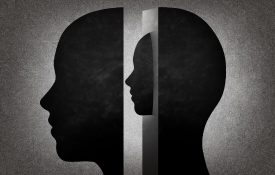-
Coronavirus Turmoil Raises Depression Risks in Young Adults
“A number of kids are expressing that these are supposed to be the best years—high school and college—the most free years,” says Anne Marie Albano, a professor of medical psychology in psychiatry at Columbia University
-
Stop Blaming Mental Illness
APS Fellow Alan Leshner, who has held some of the most prestigious scientific leadership positions in the United States, calls on policymakers to support research into the real causes of mass shootings instead of scapegoating people who struggle with mental disorders.
-

Many Explanations for Why Patients Overreport Their Symptoms
Some mental health patients report more symptoms than they actually experience and this is often attributed to malingering, when people intentionally inflate their symptoms for some benefit. The assumption that such patients are malingering tends to overshadow alternative explanations, even though research indicates that there are actually multiple pathways that could lead to overreporting. Researcher Harald Merckelbach of Maastricht University and colleagues review the available data and detail some of these alternative explanations in Current Directions in Psychological Science.
-
How to Harness Your Anxiety
Anxiety has long been one of the most feared enemies in our emotional canon. We fear its arrival, feel helpless and trapped under its spell, and grant it power to overtake us in new, exciting
-
What’s Life Like After Depression? Surprisingly, Little Is Known
A generation ago, depression was viewed as an unwanted guest: a gloomy presence that might appear in the wake of a loss or a grave disappointment and was slow to find the door. The people
-

Myth: People With Mental Illness Are More Prone to Violence
Instructors should be prepared to listen for —and challenge — belief perseverance, and can use this myth to highlight how automatic and difficult belief perseverance can be to overcome.

